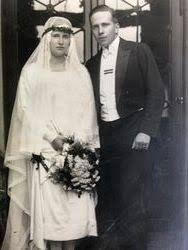Born on August 28, 1900, in Narol, Poland, Josef Leib Schneider’s journey was marked by both hardship and hope. In the 1920s, he moved to Antwerp, Belgium, where he married Debora Sandbank, and together they had two children, Luis and Regina.
When war broke out, the family fled to France, but Josef was captured. From Drancy transit camp, he was deported to Auschwitz on September 4, 1942. Later, during the death marches, he was evacuated to Buchenwald and, ultimately, liberated at Theresienstadt.
When asked how he survived the horrors of those years, Josef’s answer was simple: he kept the image of his wife and children in his mind, knowing he had to survive for them.
Miraculously, after the war, Josef was reunited with Debora, Luis, and Regina. In 1948, they emigrated to the United States, where Josef worked as a tailor in New York City. He built a quiet, humble life, focused on peace, family, and love.
His granddaughter, Shelley English, later recalled:
“He was a good man — a humble and private man — with simple needs. All he wanted was to live in peace with his family and see his grandchildren thrive. He found that peace on Second Avenue in New York City.”
Josef passed away in 1981, but his legacy lives on — a testament to the power of love, resilience, and the refusal to let it die, even in the darkest times.